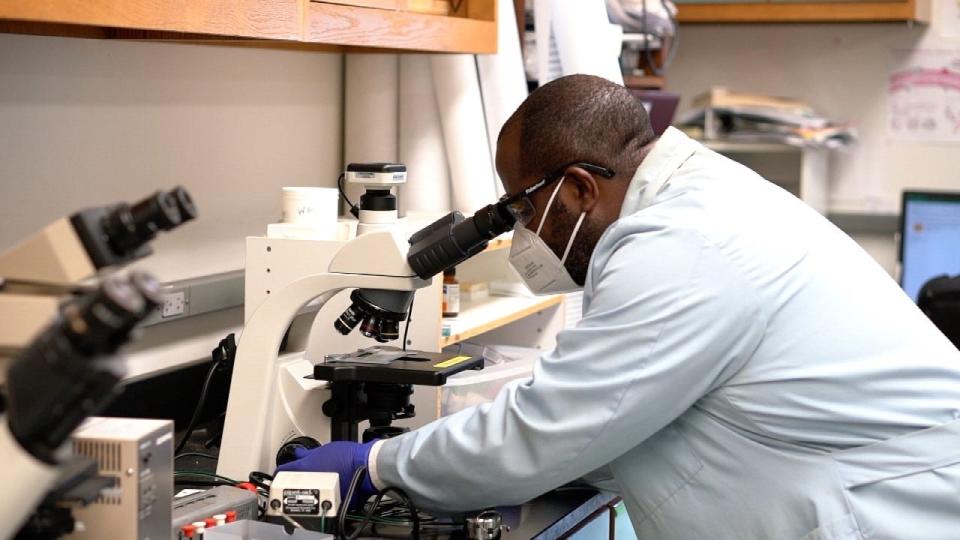Breast milk of vaccinated mothers contains COVID-19 antibodies, study shows
GAINESVILLE, Fla. — Mothers vaccinated against COVID-19 may be able to pass along protection against infection to their nursing babies, according to a recently published study from the University of Florida.
Antibodies passed through breast milk could prove beneficial to babies, researchers said, but further study is needed to determine their impact.
"A lot of moms, pregnant women, are afraid to get vaccinated. They want to do what's best for their babies," said Dr. Josef Neu, a co-author of the study and professor in the UF College of Medicine Department of Pediatrics and Division of Neonatology. "This is something that we wanted to know whether it may actually provide some benefit."
Mu COVID-19 variant: What we know about the variant and why Fauci is 'keeping a very close eye on it'
In Georgia: 88-year-old professor quits during class over student refusing to properly wear mask
Watch: Do coronavirus vaccines affect fertility?
Babies are born with their immune systems not fully developed, Joseph Larkin III, a senior author of the study and associate professor in the UF Department of Microbiology and Cell Science, explained.
They are too young to get the COVID-19 vaccine and cannot protect themselves. Breast milk, however, is like a helpful tool box that can be altered to potentially improve that vulnerability.
"Milk is a dynamic substance. So in other words, what the baby and the mom (are) exposed to in the environment, there are changes in the milk that correspond to these environmental conditions," Neu said. "And these can then specifically help the baby."
According to a UF news release, the study began in December when the COVID-19 vaccines were first made available to health care workers and ran through March.
Using volunteer subjects, the blood and breast milk of 21 lactating mothers who worked in health care, had never had COVID-19 and were eligible to be vaccinated with either the Pfizer-BioNTech or Moderna COVID-19 vaccines were tested three times: before vaccination, after the first dose and following the second shot with series completion.

The researchers found that in breast milk specifically, after the second dose, there was a pronounced 100-fold increase of immunoglobulin A antibodies, Larkin said.
For curious parents, he added, the antibodies are still present if breastmilk is frozen and stored rather than given immediately to a child.
Other studies have shown that antibodies produced by pregnant women vaccinated for COVID-19 are passed to a fetus through the umbilical cord blood.
In Alabama: Pregnant unvaccinated nurse and her unborn 'sweet baby girl' both die of COVID-19
The new UF study did not answer if antibodies found in breast milk and passed on to babies provide protection or in what amount. But the team is exploring the unanswered questions in further research.
The study did show that the vaccination was safe for the 21 mothers involved and provided them with immunity, Neu said. He and Larkin emphasized that their study is not meant to stress anyone who can't breastfeed, and they hope its findings encourage more people to get the COVID-19 vaccine.
"By just them becoming vaccinated, they are already helping the baby," Larkin said.
According to Neu and the U.S. Centers for Disease Control and Prevention, pregnant or recently pregnant women have an increased risk for severe illness from COVID-19. Some are on ventilators, the doctor said, while others can have preterm births, lose their baby or even their lives.
"Sometimes, we lose moms because they are so sick with this terrible disease and they’re unvaccinated," Neu said. "And it’s something that can be prevented."
This article originally appeared on The Gainesville Sun: Moms with COVID vaccine may pass antibodies to babies in breastmilk
Watch: How the world could be better after COVID

